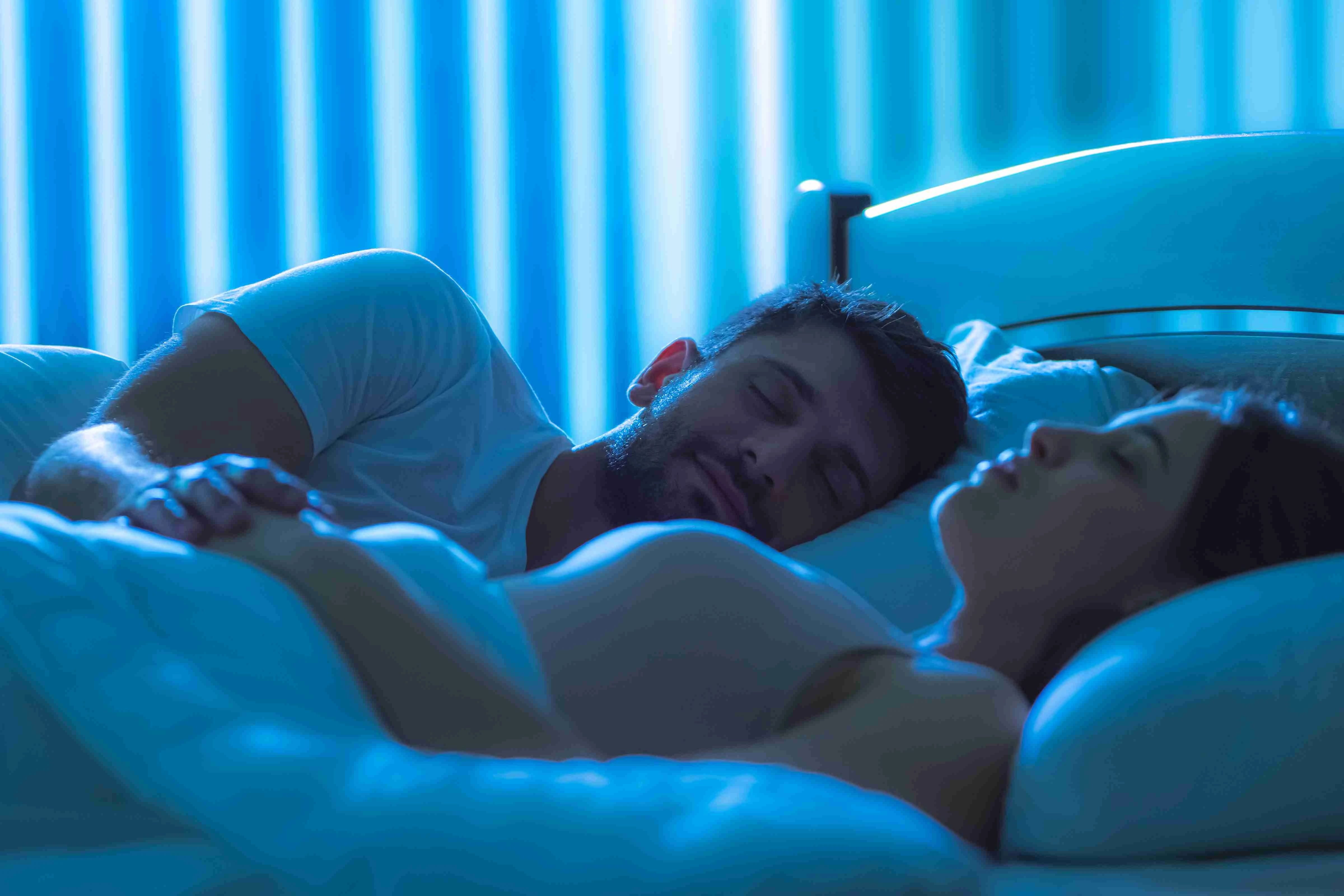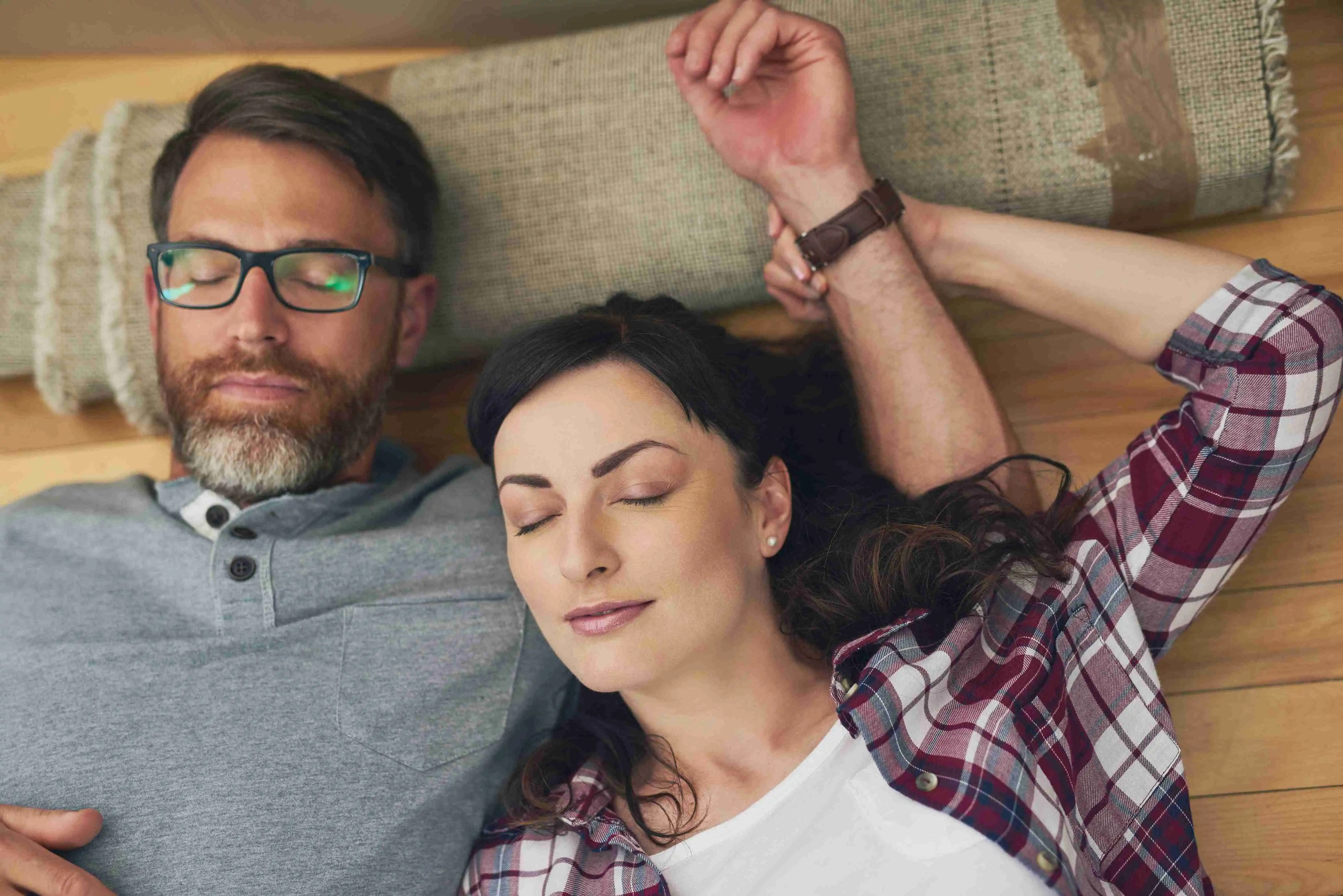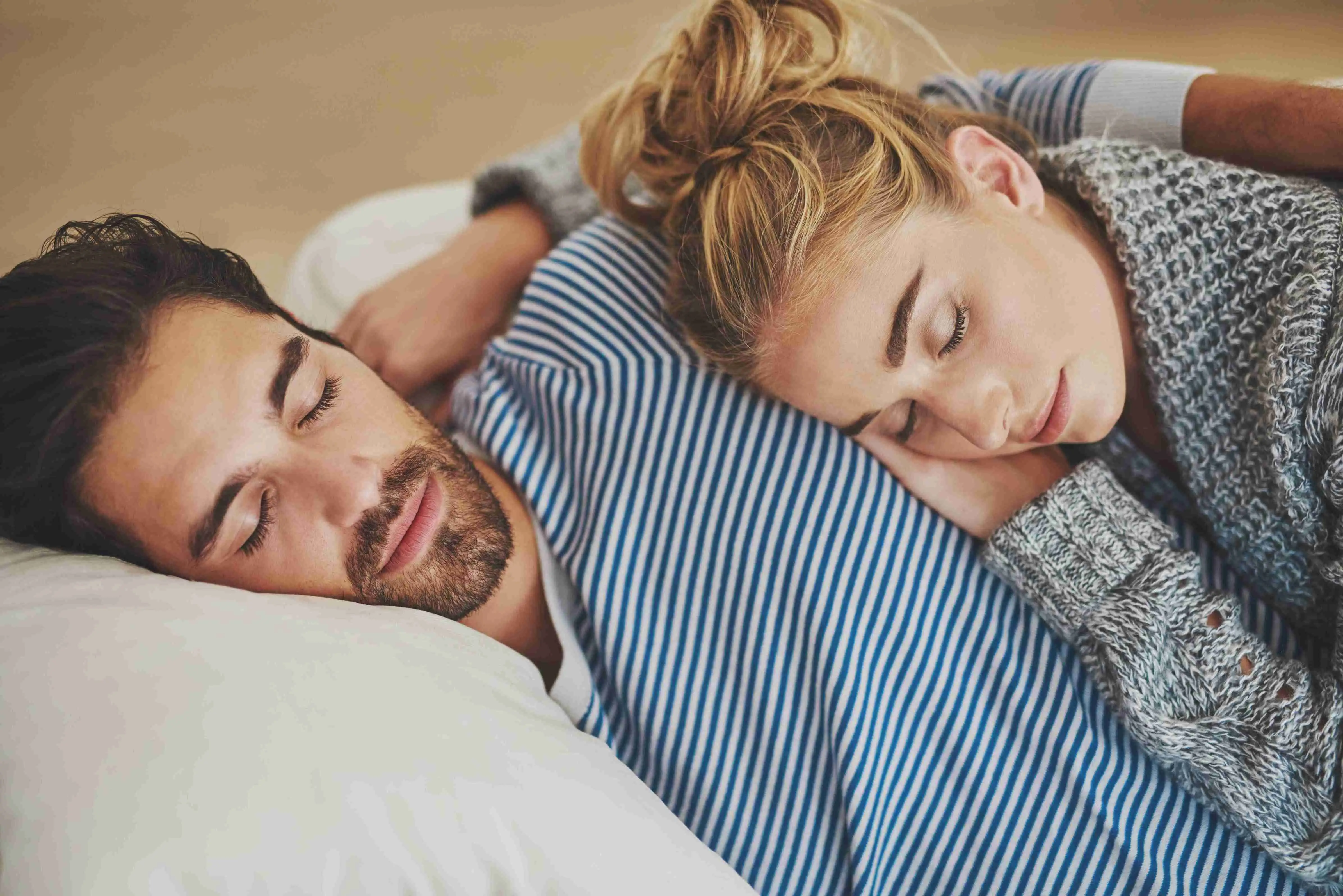Sleep is a crucial aspect of our well-being, yet it affects men and women in distinct ways. While both genders require quality rest to recharge and perform daily tasks, biological and lifestyle factors can influence how they experience sleep. Understanding how sleep works provides valuable insight into these differences and how they impact overall health.
From hormonal fluctuations to stress and sleep disorders, the differences between male and female sleep patterns are more than just anecdotal—they are deeply rooted in our physiology. Understanding how sleep varies between the sexes can help tailor more effective sleep strategies, improve rest quality, and support overall health.
The Science Behind Sleep
At its core, sleep is regulated by a complex interplay of neurological and hormonal processes. Your brain cycles through different stages of sleep, each serving a unique purpose in restoring and rejuvenating your body and mind. These stages include light sleep, deep sleep, and rapid eye movement (REM) sleep, which occur in repeating cycles throughout the night.
However, the architecture of these sleep cycles and the quality of rest they provide can differ markedly between the sexes. Factors such as hormonal fluctuations, brain structure, and even societal roles can influence how men and women experience sleep.
Biological Differences in Male and Female Sleep Patterns

When it comes to sleep patterns, men and women are not created equal. There are several key biological differences that influence how each gender experiences rest:
Sleep Architecture
- Women generally have a higher percentage of deep sleep (slow-wave sleep) and spend more time in the lighter stages of sleep. They also tend to have a higher overall sleep efficiency, meaning they fall asleep faster and spend less time awake during the night.
- Men, on the other hand, tend to experience more fragmented sleep and have a higher proportion of light sleep compared to women. This means they might wake up more often throughout the night. Learn more about Light Sleepers.
Sleep Onset
- Women typically take longer to fall asleep compared to men, which can be due to hormonal fluctuations and greater levels of anxiety or stress. Women’s sleep patterns can also be more sensitive to environmental changes.
- Men usually fall asleep faster, with fewer disruptions during the sleep onset phase.
Sleep Maintenance
- Women often experience more sleep disturbances throughout the night, especially during certain life stages, like menstruation, pregnancy, and menopause, which can affect sleep quality.
- Men are generally less likely to have frequent awakenings and tend to have more continuous sleep patterns, although these characteristics can be affected by age-related changes like sleep apnea.
REM Sleep
- Women tend to have longer periods of REM sleep (Rapid Eye Movement sleep) compared to men. REM sleep is the stage where dreaming occurs, and it's essential for cognitive functions like memory consolidation.
- Men, however, experience less REM sleep on average, which may influence their ability to recall dreams or process emotional experiences.
Circadian Rhythms
- Women’s circadian rhythms (internal body clocks) tend to be slightly shorter than men’s, making women more likely to wake up earlier and go to sleep earlier.
- Men’s circadian rhythms are generally longer, which can cause them to stay up later into the night and may make them morning-averse.
Hormonal Influences on Sleep Quality
Hormones play a pivotal role in regulating sleep, and the hormonal landscapes of men and women differ significantly. These differences can have a profound impact on sleep quality and patterns:
For Women
- Estrogen and Progesterone: These hormones fluctuate throughout the menstrual cycle, affecting sleep quality. During the luteal phase, when progesterone levels are high, some women may experience improved sleep. However, during menstruation, the drop in hormones can lead to sleep disturbances.
- Melatonin: Women generally produce more melatonin than men, which may contribute to their tendency to fall asleep more quickly.
For Men
- Testosterone: This hormone plays a role in regulating sleep-wake cycles. Lower testosterone levels, which can occur with age, may contribute to sleep disturbances in men.
- Cortisol: Men typically have higher cortisol levels in the morning, which can affect their ability to sleep in later than women.
Both genders are affected by the sleep-regulating hormone melatonin, but its production and effects can vary. Understanding these hormonal influences can help you tailor your sleep habits to work with your body's natural rhythms.
Sleep Disorders: Men vs. Women
Sleep disorders affect millions of people worldwide, but their prevalence and manifestation can vary significantly between men and women. Here's a breakdown of some common sleep disorders and their gender-specific characteristics:
| Sleep Disorder | Prevalence in Women | Prevalence in Men | Notes |
|---|---|---|---|
| Insomnia | Higher | Lower | Women are 1.4 times more likely to report insomnia symptoms |
| Sleep Apnea | Lower | Higher | Men are 2-3 times more likely to be diagnosed with sleep apnea |
| Restless Leg Syndrome | Higher | Lower | Women are about twice as likely to experience RLS |
| Narcolepsy | Equal | Equal | No significant gender difference in prevalence |
| Night Terrors | Lower | Higher | More common in men, especially in adulthood |
These differences in prevalence can be attributed to various factors, including hormonal influences, anatomical differences, and even societal pressures. For example, the higher rate of sleep apnea in men is partly due to differences in upper airway anatomy and fat distribution.
The Impact of Lifestyle Factors on Sleep for Men and Women

While biological factors play a significant role in sleep differences between men and women, lifestyle choices can also have a profound impact on sleep quality. Here are some key lifestyle factors that affect sleep, often in gender-specific ways:
Work Schedules
- Women often juggle multiple roles in the workplace and at home, which can lead to inconsistent sleep schedules. Shift work or long working hours can disrupt women’s sleep more significantly due to the added responsibilities.
- Men’s work schedules tend to be less fragmented, allowing for more consistent sleep, though stress from work-related pressures can still cause sleep disturbances.
Caregiving Responsibilities
- Women are more likely to be primary caregivers for children or elderly family members, which often means interrupted sleep, especially during the night.
- While men also participate in caregiving, they typically experience fewer disruptions during the night. However, stress from caregiving responsibilities can still impact sleep quality.
Exercise Habits
- Women are generally less likely to engage in vigorous physical activity compared to men, which can affect their overall sleep quality. Regular moderate exercise can improve sleep, but a lack of activity may contribute to issues like insomnia or poor sleep quality.
- Men tend to engage in more intense physical activity, which can improve deep sleep and overall sleep quality. However, intense exercise right before bed can sometimes have the opposite effect, keeping them more alert.
Diet and Nutrition
- Women’s diets can be influenced by hormonal cycles, with many reporting changes in sleep quality during menstruation, pregnancy, or menopause. Caffeine or alcohol consumption might also have a different effect on sleep compared to men, with women being more sensitive to its sleep-disrupting effects.
- Men tend to consume larger portions of food, especially heavy meals before bed, which can disrupt sleep. Additionally, alcohol consumption is linked to poor sleep quality, which can affect men’s sleep patterns significantly.
The Role of Stress and Anxiety in Sleep Disparities
Stress and anxiety can significantly impact sleep quality, and their effects often manifest differently in men and women:
Women and Stress-Related Sleep Issues
- Insomnia Symptoms: Women are more likely to experience chronic insomnia as a result of stress and anxiety. They may struggle to fall asleep, stay asleep, or wake up too early and find it difficult to go back to sleep. Hormonal fluctuations, such as those during menstruation, pregnancy, or menopause, can exacerbate insomnia symptoms, making it harder for women to get the rest they need.
- Rumination and Worry at Bedtime: Women often experience rumination (replaying thoughts or worries) at night, which can prevent them from relaxing and falling asleep. The mental load of balancing work, family, and personal concerns often leads to increased stress levels and anxiety at bedtime. This pattern of overthinking makes it challenging to wind down, contributing to restless sleep or waking up feeling exhausted.
- Hormonal Fluctuations: Changes in hormone levels throughout the menstrual cycle, pregnancy, and menopause can impact sleep patterns. For example, fluctuations in progesterone and estrogen may lead to disrupted sleep, hot flashes, or night sweats, which are particularly common during perimenopause and menopause. These hormonal changes contribute to higher levels of stress and sleep disturbances.
Men and Stress-Related Sleep Issues
- Difficulty Falling Asleep: Men often face difficulty falling asleep when stressed, as their bodies are in a heightened state of arousal. Stress can trigger the release of cortisol, the "stress hormone," making it harder for the body to relax and fall into sleep. This can lead to delayed sleep onset, where men find themselves lying awake for longer periods, thinking about stressors like work, finances, or personal issues.
- Sleep Disruptions: Sleep disruptions are common for men under stress, with waking up in the middle of the night or too early in the morning being frequent occurrences. This can be particularly evident in those with work-related stress or relationship issues.
Strategies for Better Rest

Given the differences in how men and women experience sleep, it's beneficial to tailor sleep strategies to your specific needs. Here are some gender-specific tips for optimizing your sleep:
For Women
- Sync With Your Cycle: Women’s sleep patterns can be influenced by the menstrual cycle, so adjusting sleep routines according to different phases of the cycle can improve sleep quality. During the luteal phase (after ovulation), progesterone increases, and this can make women feel more tired, so early bedtime might help during this phase.
- Address Hormonal Issues: Hormonal fluctuations, especially during pregnancy and menopause, can cause sleep disruptions. Consulting with a healthcare provider about hormone imbalances and considering therapies like hormone replacement therapy (HRT) can help alleviate sleep problems associated with hormonal changes.
- Prioritize Stress Management: Women often juggle multiple roles that lead to high stress levels, impacting sleep. Incorporating stress-reducing practices such as meditation, yoga, or cognitive-behavioral therapy (CBT) can help improve sleep quality and reduce the mental load before bedtime.
- Keep the Bedroom Cool and Well-Ventilated: To manage hot flashes, try keeping the bedroom cool and using fans or air conditioning to maintain a comfortable temperature. Light, breathable fabrics for bedding and pajamas can also help reduce discomfort during the night.
- Consider Hormone Replacement Therapy: Hormone replacement therapy (HRT) can help balance hormone levels and alleviate some symptoms of menopause, including sleep disturbances. Consulting with a healthcare provider can help determine if HRT is right for you.
- Practice Good Sleep Hygiene: Prioritize sleep hygiene by keeping a consistent sleep schedule, avoiding caffeine and electronics before bed, and creating a relaxing nighttime routine. These habits can improve the quality of sleep, even when experiencing menopausal symptoms.
For Men
- Screen for Sleep Apnea: Men are at a higher risk for sleep apnea, a condition where breathing repeatedly stops and starts during sleep. If you frequently feel fatigued or wake up gasping for air, consider getting screened for sleep apnea to improve your sleep quality and overall health.
- Maintain a Consistent Sleep Schedule: Men are often prone to staying up late due to work or social activities, which can disrupt the body’s internal clock. Keeping a consistent bedtime and wake-up time, even on weekends, can help regulate the sleep-wake cycle and improve sleep quality.
- Balance Work and Rest: Work-related stress and overcommitment can lead to sleep deprivation. Make sure to set aside time for rest and recovery to maintain a healthy balance between work, physical activity, and sleep to prevent burnout and improve sleep quality.
FAQs
Why do women seem to need more sleep than men?
Women tend to need slightly more sleep due to differences in brain activity and hormonal influences. Women's brains may work harder during the day, requiring more recovery time during sleep.
Are men more likely to snore than women?
Yes, men are more prone to snoring due to anatomical differences in the upper airway and a higher prevalence of sleep apnea.
How does menopause affect women's sleep?
Menopause can significantly disrupt sleep due to hot flashes, night sweats, and hormonal changes that affect sleep architecture.
Do men and women have different circadian rhythms?
Generally, women tend to have earlier circadian rhythms, preferring to sleep and wake earlier than men.
Are there gender differences in insomnia rates?
Yes, women are more likely to report insomnia symptoms than men, possibly due to hormonal fluctuations and higher stress levels.
Conclusion
In conclusion, the way men and women experience sleep is influenced by a mix of biological, hormonal, and lifestyle factors. Whether it’s managing stress, addressing hormonal changes, or tackling gender-specific sleep disorders like sleep apnea, understanding these differences can help optimize sleep for both genders.
Jessica H.
Jessica is a reviewer, writer, and sleep enthusiast at Sleepiverse. Jessica graduated with her master's degree in Nursing research and education. She is a registered nurse and currently works in the Intensive Care Unit. Since becoming a nurse, Jessica has worked the night shift, which means a disrupted sleep schedule. Knowing she needed to function at her best while caring for patients at night, she spent a lot of time researching how to sleep well with a difficult schedule.


